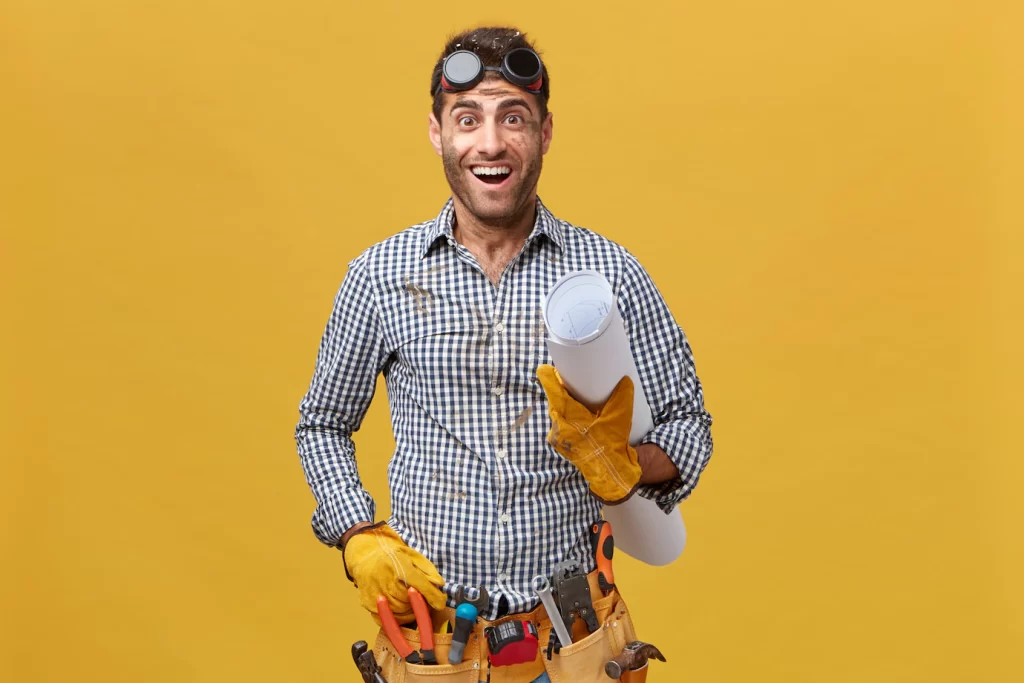Table of Contents
ToggleWinter is quickly approaching and many people are starting to think about the cold weather and what they can do to keep their homes warm. What many people don’t think about is their plumbing. The last thing you want is for your pipes to freeze and burst.
As the weather outside gets colder and the days grow shorter, it’s important to take some extra steps to protect your plumbing and keep your pipes from freezing this winter.
Here are 12 tips to help you avoid frozen pipes and the costly repairs that can come with them:
1. Keep your thermostat set to the same temperature
To prevent your pipes from freezing this winter, make sure to keep your thermostat set at the same temperature day and night. A sudden drop in temperature can cause your pipes to freeze. By keeping your thermostat set at a consistent temperature, you’ll help prevent them from becoming brittle and breaking when temperatures drop below freezing.
Additionally, try to avoid using hot water during cold weather months as it can loosen frozen pipes. If you do experience a frozen pipe, don’t panic; there are many ways to fix it without having to call a plumber. Try thawing out the pipe by running warm water through it until it starts flowing freely again or use a plunger to suction onto the pipe and pull gently until the frozen section pops free.
2. Let warm air circulate around your plumbing.
When it’s cold outside, the temperature inside your home can drop quickly. This can cause pipes to freeze and burst, so it’s important to take some precautions to keep them safe this winter. One way to prevent pipes from freezing is to open cabinet doors in rooms with outside walls and let warm air circulate around your plumbing.
This will help keep the temperature inside your home higher than it would be if you didn’t open the doors, and it will also prevent drafts from entering your home. Additionally, make sure that all of your water lines are insulated, and check for any leaks or cracks in your piping system. If you notice any problems with your pipes during the winter, don’t hesitate to call a professional plumber for help.

3. Seal any cracks
To prevent your pipes from freezing this winter, seal any cracks or openings in your home’s foundation or exterior walls.
This will help keep cold air from coming in contact with your pipes and potentially causing them to freeze. Additionally, make sure that all of your plumbing is properly insulated and installed properly so that it can withstand the cold weather conditions.
Be sure to check on your water pressure regularly and report any abnormalities to your local water utility as soon as possible. By doing these simple steps, you’ll be able to keep your home warm and dry this winter!
4. Insulate your pipes
When it comes to keeping your pipes from freezing this winter, one of the most effective measures you can take is insulation. Foam pipe insulation or electric heat tape can help keep your pipes warm and free from damage. Be sure to follow the manufacturer’s instructions when using either product, as improper installation could lead to serious problems.
Additionally, be sure to check your water meter for leaks; if there are any, address them as soon as possible so that they don’t freeze and cause a water main break. Finally, make sure all of your exterior doors and windows are closed tight at all times; this will help reduce drafts that can contribute to frozen pipes. Find here best Plumber in Oslo (Rørlegger i Oslo), Norway.
5. Allow a trickle of water to flow
To prevent your pipes from freezing this winter, allow a trickle of water to flow from your faucets during extremely cold weather. This will help keep the water in your pipes from freezing.
Make sure that all of your plumbing is properly insulated and that you are using the proper type of pipe insulation. Finally, be sure to check for blockages in your plumbing regularly and call a plumber if you notice any problems.
6. Keep garage door closed
If your plumbing runs through your garage door, make sure to keep it closed this winter. This will help prevent the pipes from freezing and bursting.
Additionally, make sure to turn off all of the water valves in your home if you are not using them. This will help conserve energy and avoid any potential water damage.
7. Disconnect any outdoor hoses
Disconnecting any outdoor hoses and draining them before the first freeze of the season will help to prevent your pipes from freezing. By disconnecting these hoses, you are stopping water from going into the ground and then coming back up through the frozen pipes.
This will cause a lot of damage to your system and could even lead to a pipe burst. If you have an automatic sprinkler system, be sure to turn it off when temperatures drop below 32 degrees Fahrenheit.
8. Check on your home heating system
If you plan to be away from home for an extended period of time, have a trusted friend or neighbor check on your home to make sure your heat is working and there is no water leakage. If you notice any of these signs, contact a professional:
- Your pipes are frozen
- You see water coming out of the faucet even when it’s not raining
- Water is leaking from the roof or walls
9. Know where main water shut-off valve is located
If you live in an area that experiences cold winters, it’s important to be aware of the risks associated with frozen pipes. Frozen water can cause burst pipes, which can lead to flooding and even loss of life. Here are some tips to keep your plumbing system from freezing this winter:
- Make sure all outdoor faucets are turned off during colder weather. This includes both indoor and outdoor spigots.
- If you have a main water shut-off valve near your home, make sure it’s accessible in case of an emergency.
- Check for any leaks or breaks in your piping system. If there is a break, freeze could enter the pipe quickly and cause damage.
10. Thaw out pipes gradually
If your pipes do freeze, thaw them out gradually using a hair dryer or space heater. Do not use a blow torch, kerosene heater, or any other open flame to thaw your pipes.
If your pipes do freeze this winter, there are a few things you can do to prevent them from bursting and causing major damage. First, slowly thaw your pipes using a hair dryer or space heater. Do not use a blow torch, kerosene heater, or any other open flame to thaw your pipes.
Make sure all of the water lines in your home are properly insulated. Third, keep an eye on frozen water lines and break them up as soon as you see them so they don’t form large chunks that could easily burst when thawed. Finally, if you notice any signs of freezing around the plumbing system (ice buildup on hoses and manifolds, for example), contact a professional immediately.
11. If you have a plumbing leak, repair it
If you have a plumbing leak, repair it as soon as possible. A small drip can quickly turn into a large leak if the water freezes and expands inside your pipes. Here are some tips to help keep your pipes from freezing this winter:
- Make sure all of your drains are clear by removing any clogs or debris
- Check for leaks around faucets, valves, and other plumbing fixtures
- Cover exposed parts of piping with insulation or plastic wrap
- Keep an emergency kit on hand that includes pliers, wrenches, sealant, and sandpaper
A small drip can quickly turn into a large leak if the water freezes and expands inside your pipes.
12. Regularly check your home’s plumbing
It’s that time of year again where temperatures start to drop and the weather turns cold. Unfortunately, this can also mean frozen pipes in your home. Frozen pipes can cause major water damage, so it’s important to take steps to prevent them from happening.
By taking a few simple precautions, you can keep your plumbing in tip-top shape all winter long! Thanks for reading; we hope to hear from you in the comments.








